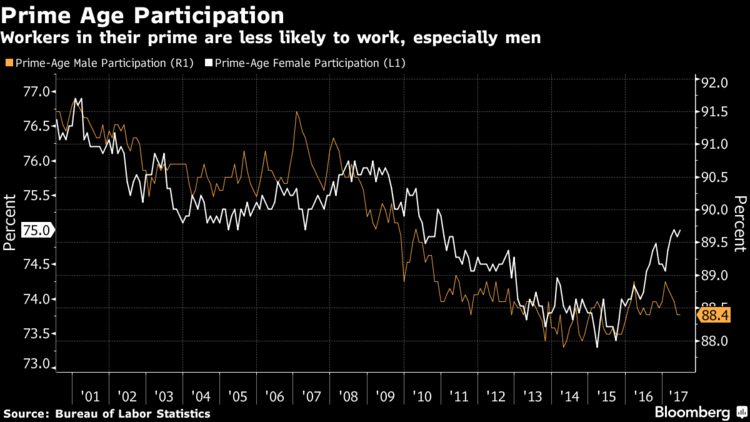Bill Polacek’s industry is dealing with a labor market problem so big, even Federal Reserve Chair Janet Yellen is talking about it.
A few years ago, Polacek interviewed 350 people to fill openings for 50 welders and machinists at his Johnstown, Pennsylvania-based manufacturing company. After narrowing the pool down to 100, he found that half of those candidates either had a criminal record or failed the drug test.
“We weren’t attracting the right people,” Polacek says of the episode, which prompted him to invest in extensive outreach to local high schools to build up a pipeline of workers.
The type of hard-to-hire Americans Polacek encountered pose a growing problem for many employers, as a deepening opioid crisis plagues American communities just as the jobless rate hovers near a 16-year low. The drug epidemic has caught the Fed’s attention. Yellen discussed it at length during Senate testimony last week and regional Fed banks say companies in their areas cite it as a hiring impediment.
Opioid Abusers
The opioid epidemic falls outside of the Fed’s traditional macroeconomic purview, yet it matters to the central bank for two reasons. If addiction is rendering people unemployable, it could help to explain why a historically low portion of the prime-age population is working. Second, the Fed has increased its focus on community and workforce development in recent years -- and the opioid crisis is a painful reality dragging on human capital across America.

An estimated 2.7 million adults over the age of 26 were misusing painkillers as of 2015, while another 236,000 currently used heroin, based on test Substance Abuse and Mental Health Administration data. While opioid abusers account for a tiny sliver in a workforce of 160 million, they probably make up a great share of the 7 million who are unemployed.
“Our district is the epicenter of this crisis,” said Kyle Fee, regional community development advisor at the Cleveland Fed, which hosted a policy conference in June that included a panel specifically dedicated to opioids. “It was a good way for us to dip our toe into this topic,” he said.
Most economic research on the effects of the opioid crisis comes from academia, rather than Fed researchers, and it shows a two-way relationship between the drugs and the U.S. economy.
Labor Opportunties








